Zeus and Eleusis
Zeus is the most famous ancient Greek deity. King of gods and humans, he is also the god of the sky, law, order, fate, and protector of kings. His beard, lightning bolt, and eagle make him a familiar divine face. But he also has a sinister side, which is evident in his role in the story of Demeter and Persephone. Since he was master and commander of everything under the sun (it was not for nothing that one of his epithets was “far-seeing”), it seems improbable that Hades, his brother, would have been able to rape Persephone without his knowledge. But Zeus not only knew what was about to happen but gave his blessing.
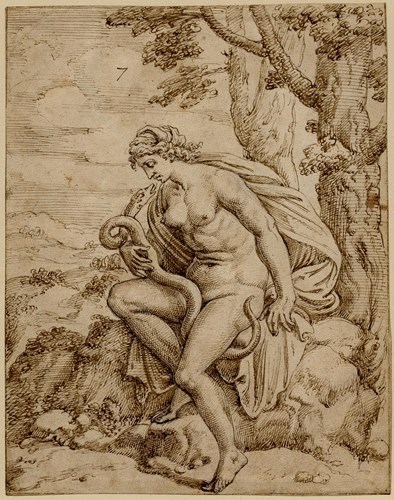
According to the epic poet Hesiod, Persephone was the daughter of Zeus and Demeter. The Orphics added that the couple mated disguised as snakes. The king of gods must have been much taken by Demeter’s beauty: “I loved the queen Demeter of the lovely tresses” he reveals in Homer’s Iliad. These feelings, though, did not prevent him from allowing his brother to rape his daughter. He finds an opportune moment when Demeter is not looking and allows Hades to carry off Persephone.
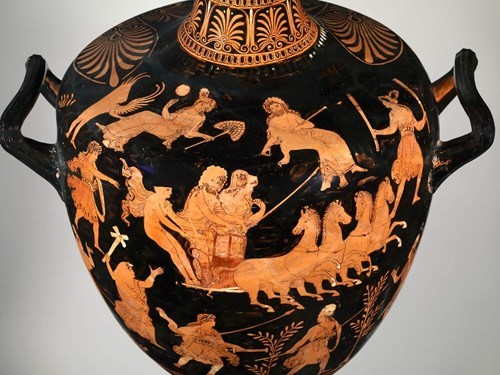
There are no witnesses to the event (the Oceanids seem unable to contribute anything in this regard, even though they were with Persephone when the terrible event took place), so Demeter seems utterly lost and searches the whole wide world in vain. Zeus stays mum throughout this ordeal. Persephone called him as she was being carried away, but he remained seated far apart from the gods, inside a temple all by himself, receiving beautiful sacrifices from mortals.
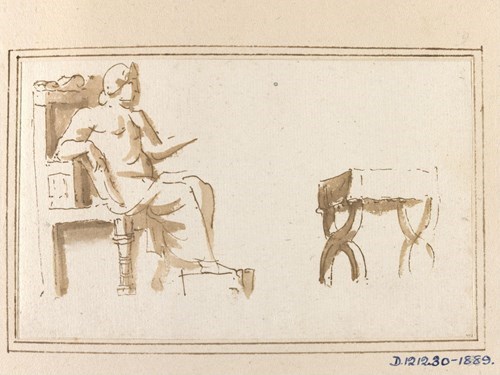
For many months, as Demeter searched for her daughter, Zeus failed to intervene. But when the goddess of agriculture inflicts a harsh hunger on all mortals and prohibits the earth from sending forth crops, the supreme god is forced to take notice. The lack of sacrificial portions of meat for eating or for burning threatens all gods with loss of honour. Zeus sends Iris, his messenger, to invite Demeter to Olympus. She refuses. Every god follows, pleading with her to join their company and release the bountiful powers of the earth.
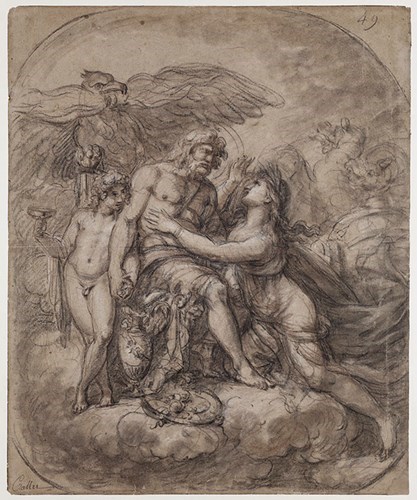
Demeter’s anger cannot be appeased though, and the fragrant chambers of Mount Olympus mean nothing to her. Zeus is finally forced to act. He dispatches Hermes, the messenger of the gods, to Hades and orders his brother to allow Persephone to return to her mother. The lord of the Underworld has no choice but to obey. Kore arrives in Eleusis to join Demeter. And then Zeus reveals the final twist in this supernatural plot. In a supreme act of divine balance, he determines that his daughter would have to spend a third portion of the year in the realms of dark mist and the other two thirds in the company of her mother and the other immortals.
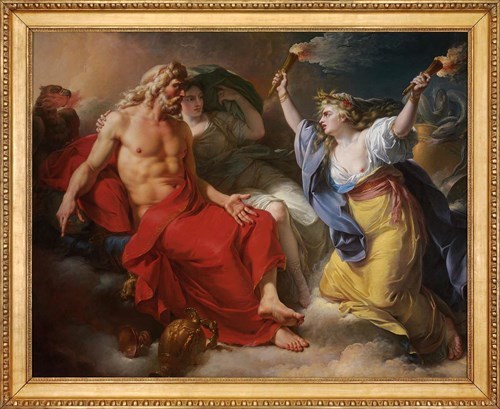
Bibliography
Αλεξοπούλου-Μπαγιά, Πόλλυ. Ιστορία της Ελευσίνας: Από την Προϊστορική μέχρι τη Ρωμαϊκή περίοδο, Ελευσίνα: Δήμος Ελευσίνας, 2005.
Cashford, Jules και Richardson, Nicholas. The Homeric Hymns, London: Penguin, 2003.
Crudden, Michael. The Homeric Hymns, Oxford: Oxford University Press, 2008.
Foley, Helene. The Homeric Hymn to Demeter: Translation, Commentary, and Interpretive Essays, Princeton: Princeton University Press, 2013.
Mylonas, George. Eleusis and the Eleusinian Mysteries, London: Routledge, 1962.
Images
1st & last image: Boston Museum of Fine Arts Antoine-François Callet (1777): Ceres Begging for Jupiter's Thunderbolt after the Kidnapping of Her Daughter Proserpine
2nd image: The British Museum Michiel Coxie (1514-1592): Jupiter, in the form of a speckled serpent, making love to Proserpina
3rd image: The Metropolitan Museum Group of B.M. F 308 (c. 340–330 BCE): The abduction of Persephone by Hades surrounded by gods (Zeus and Aphrodite)
4th image: Victoria and Albert Museum Jan de Bisschop (c. 1628-1671): Enthroned figure of Zeus
5th image: École nationale supérieure des Beaux-arts de Paris Antoine-François Callet (1777): Zeus and Demeter


